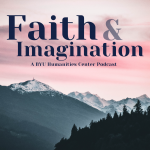
Van Gessel is Professor Emeritus of Japanese Literature at Brigham Young University, where he also served as dean of the College of Humanities. He is a distinguished scholar of Japanese literature, including of the Japanese Catholic writer Shusaku Endo, six of whose novels (and two short story collections) Van has also translated. Endo writes hauntingly …
